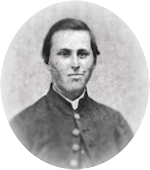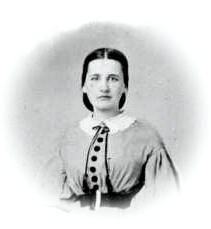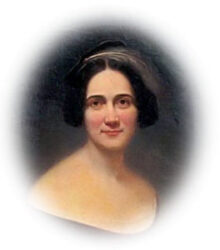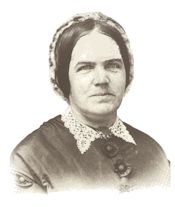May 18th.—A feeling of sadness hovers over me now, day and night, which no words of mine can express. There is a chance for plenty of character study in this Mulberry house, if one only had the heart for it. Colonel Chesnut, now ninety-three, blind and deaf, is apparently as strong as ever, and certainly as resolute of will. Partly patriarch, partly grand seigneur, this old man is of a species that we shall see no more—the last of a race of lordly planters who ruled this Southern world, but now a splendid wreck. His manners are unequaled still, but underneath this smooth exterior lies the grip of a tyrant whose will has never been crossed. I will not attempt what Lord Byron says he could not do, but must quote again: “Everybody knows a gentleman when he sees him. I have never met a man who could describe one.” We have had three very distinct specimens of the genus in this house—three generations of gentlemen, each utterly different from the other—father, son, and grandson.
African Scipio walks at Colonel Chesnut’s side. He is six feet two, a black Hercules, and as gentle as a dove in all his dealings with the blind old master, who boldly strides forward, striking with his stick to feel where he is going. The Yankees left Scipio unmolested. He told them he was absolutely essential to his old master, and they said, “If you want to stay so bad, he must have been good to you always.” Skip says he was silent, for it “made them mad if you praised your master.”
Sometimes this old man will stop himself, just as he is going off in a fury, because they try to prevent his attempting some feat impossible in his condition of lost faculties. He will ask gently, “I hope that I never say or do anything unseemly! Sometimes I think I am subject to mental aberrations.” At every footfall he calls out, “Who goes there?” If a lady’s name is given he uncovers and stands, with hat off, until she passes. He still has the old-world art of bowing low and gracefully.
Colonel Chesnut came of a race that would brook no interference with their own sweet will by man, woman, or devil. But then such manners has he, they would clear any man’s character, if it needed it. Mrs. Chesnut, his wife, used to tell us that when she met him at Princeton, in the nineties of the eighteenth century, they called him “the Young Prince.” He and Mr. John Taylor,[1] of Columbia, were the first up-country youths whose parents were wealthy enough to send them off to college.
When a college was established in South Carolina, Colonel John Chesnut, the father of the aforesaid Young Prince, was on the first board of trustees. Indeed, I may say that, since the Revolution of 1776, there has been no convocation of the notables of South Carolina, in times of peace and prosperity, or of war and adversity, in which a representative man of this family has not appeared. The estate has been kept together until now. Mrs. Chesnut said she drove down from Philadelphia on her bridal trip, in a chariot and four—a cream-colored chariot with outriders.
They have a saying here—on account of the large families with which people are usually blessed, and the subdivision of property consequent upon that fact, besides the tendency of one generation to make and to save, and the next to idle and to squander, that there are rarely more than three generations between shirt-sleeves and shirt-sleeves. But these Chesnuts have secured four, from the John Chesnut who was driven out from his father’s farm in Virginia by the French and Indians, when that father had been killed at Fort Duquesne,[2] to the John Chesnut who saunters along here now, the very perfection of a lazy gentleman, who cares not to move unless it be for a fight, a dance, or a fox-hunt.
The first comer of that name to this State was a lad when he arrived after leaving his land in Virginia; and being without fortune otherwise, he went into Joseph Kershaw’s grocery shop as a clerk, and the Kershaws, I think, so remember that fact that they have it on their coat-of-arms. Our Johnny, as he was driving me down to Mulberry yesterday, declared himself delighted with the fact that the present Joseph Kershaw had so distinguished himself in our war, that they might let the shop of a hundred years ago rest for a while. “Upon my soul,” cried the cool captain, “I have a desire to go in there and look at the Kershaw tombstones. I am sure they have put it on their marble tablets that we had an ancestor one day a hundred years ago who was a clerk in their shop.” This clerk became a captain in the Revolution.
In the second generation the shop had so far sunk that the John Chesnut of that day refused to let his daughter marry a handsome, dissipated Kershaw, and she, a spoiled beauty, who could not endure to obey orders when they were disagreeable to her, went up to her room and therein remained, never once coming out of it for forty years. Her father let her have her own way in that; he provided servants to wait upon her and every conceivable luxury that she desired, but neither party would give in.
I am, too, thankful that I am an old woman, forty-two my last birthday. There is so little life left in me now to be embittered by this agony. “Nonsense! I am a pauper,” says my husband, “and I am as smiling and as comfortable as ever you saw me.” “When you have to give up your horses? How then?”
[1] John Taylor was graduated from Princeton in 1790 and became a planter in South Carolina. He served in Congress from 1806 to 1810, and in the latter year was chosen to fill a vacancy in the United States Senate, caused by the resignation of Thomas Sumter. In 1826 he was chosen Governor of South Carolina. He died in 1832.
[2] Fort Duquesne stood at the junction of the Monongahela and Alleghany Rivers. Captain Trent, acting for the Ohio Company, with some Virginia militiamen, began to build this fort in February, 1754. On April 17th of the same year, 700 Canadians and French forced him to abandon the work. The French then completed the fortress and named it Fort Duquesne. The unfortunate expedition of General Braddock, in the summer of 1755, was an attempt to retake the fort, Braddock’s defeat occurring eight miles east of it. In 1758 General Forbes marched westward from Philadelphia and secured possession of the place, after the French, alarmed at his approach, had burned it. Forbes gave it the name of Pittsburg.






